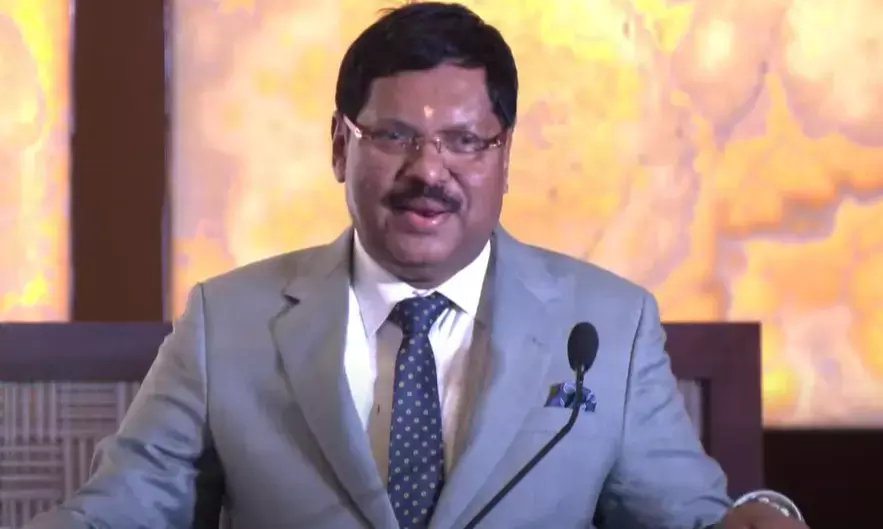“Without Tackling Inequality, No Nation Can Call Itself Truly Democratic”: CJI BR Gavai In Milan

CJI Gavai also spoke at the Fifth Wisdom for Future Talk Series yesterday at Bhutan.
Chief Justice of India (CJI) BR Gavai, speaking at an international legal forum in Milan, issued a powerful call for socio-economic justice as an indispensable foundation for a stable, democratic, and inclusive society.
Delivering a keynote address on “The Role of Constitution in Delivering Socio-Economic Justice in a Country: Reflections from 75 Years of Indian Constitution”, CJI Gavai emphasised that no nation can call itself truly progressive or democratic unless it actively addresses the structural inequalities that marginalise large segments of its population.
“Justice is not an abstract ideal,” CJI Gavai said. “It must take root in our social structures, in the distribution of opportunity, and in the conditions under which people live," he said.
Organised by the Chamber of International Lawyers, the event spotlighted the Indian Constitution’s role as a tool of transformation since its adoption in 1950.
Thanking the organisers, CJI Gavai said the Constitution's vision of socio-economic justice was not only aspirational but also a “practical necessity” for long-term peace, cohesion, and sustainable development.
“A Promise to Society”
Tracing the historical context of India's constitutional journey, CJI Gavai noted that the document was drafted in the aftermath of colonialism and was envisioned as a revolutionary statement of hope. “It is not just a political document. It is a promise to society, one that places freedom, equality, and justice at the heart of our republic,” he said.
Underscoring the transformative role of affirmative action policies, CJI Gavai said that measures in education and public employment to uplift Scheduled Castes, Scheduled Tribes, and socially and educationally backward classes reflect the Constitution's commitment to substantive equality.
“I have often said, and I reiterate today, that I am a product of those very ideals,” said CJI Gavai, referencing his own journey from a historically marginalised background to the country’s highest judicial office.
“Law as a Tool for Empowerment”
CJI Gavai emphasised that the Constitution provides not only moral guidance but also the legal framework for empowerment. “Law can be a tool for social change,” he said, “and a protector of the vulnerable," he said.
He referred to the expanding recognition of socio-economic rights through the judiciary, noting that in recent decades both Parliament and the Courts have contributed significantly to advancing access to food, healthcare, housing, and employment.
Discussing the historic Kesavananda Bharati judgment, CJI Gavai acknowledged the tensions between Parliament and the judiciary on constitutional amendments, but clarified that these conflicts must be understood in the broader context of socio-economic reforms and the pursuit of justice for all.
Recent Verdicts and Protection of Dignity
Highlighting the role of courts in defending constitutional values, CJI Gavai cited a recent verdict where the Supreme Court struck down arbitrary demolitions of homes and properties by state authorities. These demolitions, carried out without due process, targeted individuals accused of crimes even before conviction.
“In that decision, we reaffirmed that the executive cannot be judge, jury, and executioner,” he said. “Such actions violate the rule of law and the right to shelter under Article 21 of the Constitution," the CJI added.
The Chief Justice concluded by stating that socio-economic justice is not merely about redistribution or welfare schemes but about ensuring every individual can live with dignity and realise their full human potential.
“When opportunities are equitably distributed, development becomes truly inclusive,” he noted, “and democracy becomes not just a system of governance, but a lived experience of freedom, equality, and justice.”
